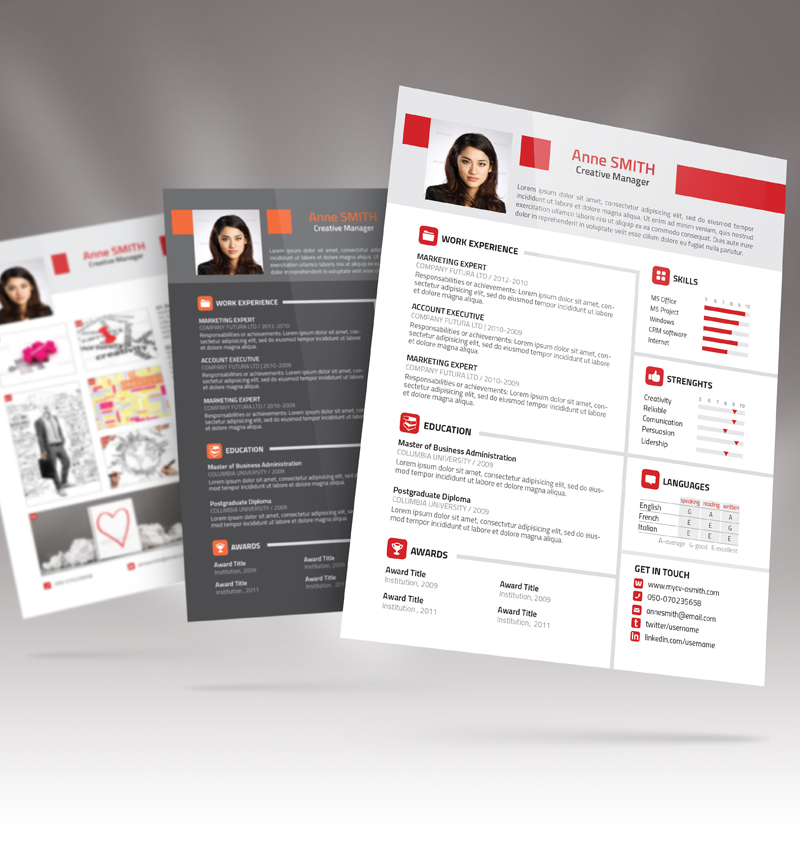“Um, what is a CV?” is a question job seekers often find themselves asking. Approach 10 professionals, and odds are high only one or two can tell you the real answer. Good news, you’re about to be one of those few people who know not just what the letters stand for, but how the CV compares to a resume, and whether or not you should have one.
Curriculum Vitae, more commonly referred to by its shorthand abbreviation CV (a Latin term meaning course of life), got tossed around a lot when I was in graduate school. I’m pretty sure I pretended to know what it meant the first time I heard it, only to go home to Google and educate myself before it came up in casual conversation again.
I quickly learned that dissertation-defending PhDs didn’t have resumes, they had CVs. Unlike the resume, which lists work history and experiences, along with a brief summary of your skills and education, the CV is a far more comprehensive document. It goes above and beyond a mention of education and work experience and often lists-in thoughtful detail-your achievements, awards, honors, and publications, stuff universities care about when they’re hiring teaching staff. Unlike a resume, which is rarely longer than a one-sided single page, the CV can be two, six, or 12 pages-depending on your professional achievements.
Let’s go over some basics of the CV versus
resume.
What is a CV?
As touched upon briefly above, CVs are primarily popular among academics, as graduate students often spend a lot of effort getting their work published during these post-grad years. While higher-education institutions undoubtedly evaluate a potential candidate’s grades and test scores, they’re also eager to see where an applicant’s been published.
“Publish or perish” was a popular sentiment during my
two years in graduate school, and it appears not much has changed.
I spoke with a couple of my former classmates who went on to obtain
doctorate degrees long after I’d left with a master’s degree in
hand and an I’ve-had-enough-of-that mindset, and they were quick to
reiterate how important getting published is to one’s career, and,
of course, the standard academic’s CV.
OK, anyone besides academics?
You’re right, they’re not the only ones who choose
the long (sometimes, very long) document over a resume. The website
Undercover Recruiter explains that U.S. and Canadian residents
need a CV if they’re applying to work abroad, specifically in the
U.K., Ireland, and New Zealand. In these countries, “a CV is used
in all contexts and resumes aren’t used at all.” Moreover, “The CV
prevails in mainland Europe and there is even a European Unio CV
format available for download,” a super helpful template if
you’re confused about how to build one.
What’s the difference between a CV and a Resume?
Short answer: Length.
Long answer: The CV’s static in that it’s not a document needing to be onstailored for different position in the way that a resume is. Rather, according to UNC Writing Center, the CV’s a “fairly detailed overview of your life’s accomplishments, especially those most relevant to the realm of academia,” hence the variance in length; an early-stage grad student’s CV is going to be a lot shorter than a sixth-year student preparing to write a dissertation.
The document only changes as your accomplishments grow-you publish the findings of a scientific study, or a short story, or you receive an award as a Teaching Assistant-whereas a resume can and should be modified often as you job search and apply to different companies and positions. At The Muse, we highly encourage you to tailor your resume for each and every job you apply to, even if the job descriptions are similar. (It’ll not only help you stand out, but also ensure you get through the ATS.)

But, How do I know when to use which?
Fortunately, if you’re still confused about where to begin, remember that almost any job you apply to will let you know what you need. It’s not typically a guessing game. When you apply for a job in New York City, or Minneapolis or Austin, there’ll likely be clear language on what’s required with the application. Begin looking into overseas opportunities, and it’s probable that the application will explicitly state that you need to submit a CV or resume for consideration.
Seriously though, if you’re truly dumbfounded about
what’s needed, it’s OK to ask the point of contact directly, “Would
you prefer a resume or CV?” (And in America, the answer will almost
always be “resume” since we know that recruiters don’t spend more
than six seconds looking, anyways.)
Should I have a CV handy?
If you don’t currently have one, I’d recommend
creating the doc just in case. You don’t have to stop everything
you’re doing right this second, but the next time you go to modify
your resume (a familiar and somewhat ongoing practice, I hope),
start building it out. If nothing else, it’ll serve a dual-purpose:
Not only can you have it handy if you do ever need it, but you’ll
also have a running list of everything you’ve ever accomplished,
a.k.a., a master resume to pull from as you tailor your own for
specific positions.
And there you go, everything you ever wanted to know (plus more!) about the differences between a CV and a resume.